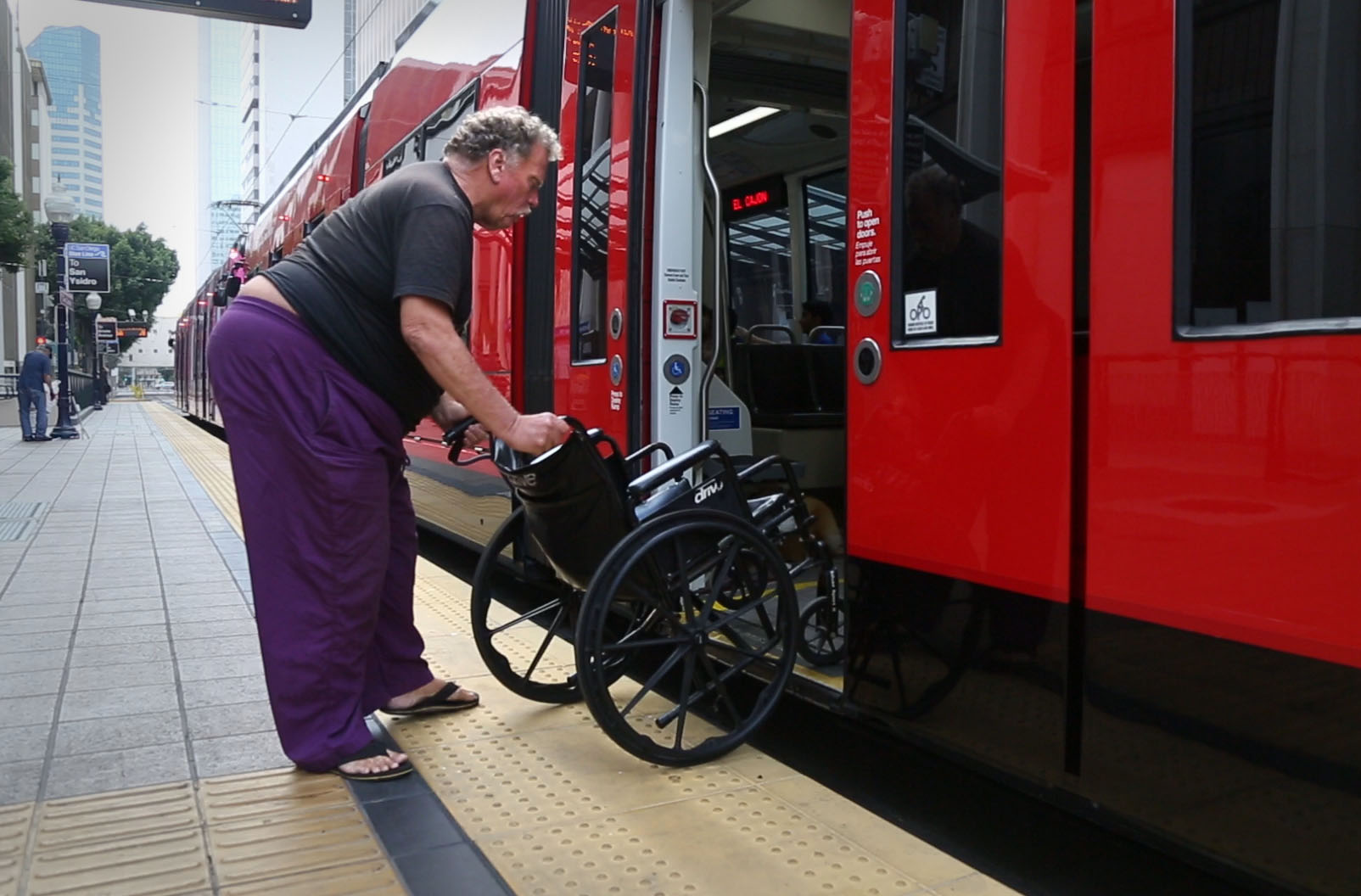Bruce
Bruce, 63, grew up in rural Michigan. He didn’t get along with his mother’s second husband, Jim, who treated him and his siblings like they were burdens, not children. His grandparents wanted to adopt him, but Jim wouldn’t allow it because it would mean giving up the welfare money that came with having Bruce at home. He characterizes his relationship with Jim through a story about the pleasant life on his grandparents’ farm where animals and nature were plentiful. A neighbor to the farm gave Bruce a puppy. Jim killed it with a shovel, then woke Bruce up to clean up the mess.
He did well on tests in school but found the classroom environment not challenging or stimulating so his grades were never good. He left home at age 13, emancipated himself at age 16 and only completed high school, because it was his grandmother’s dying wish that he get his diploma. He tried college for a short time, but wasn’t challenged there either.
Instead he went to work for the Salvation Army, but didn’t like the theological rhetoric. So went to work for the Red Cross where he saw some of the early signs of the financial abuse there that later crippled the agency. He was recruited away to work for FEMA but didn’t want to work for “Papa George” Bush. Finally he accepted an offer to work at UNCEF, for whom he travelled all over the world following tsunamis, hurricanes, floods, fires, earthquakes, and became the youngest-ever field supervisor, in his mid-20s.
Bruce left there to work undercover for a former U.N. ambassador, going into businesses and reporting back on places where women were working as prostitutes at a bar, or an employee was fleecing the owner.
In the 1960s he ran messages back and forth among noted figures in the anti-government, anti-war movement. Noted figures like Abby Hoffman needed a way to get messages circulated in the era before texting, when no one trusted their phones to not be tapped. He also spent some time “as a commodity,” he said, selling himself in the street sex trade.
When he was less able to travel, he tried college again, mostly for the financial aid again. This time, however, he turned out to be a wiz kid. He tackled a field of psychology and behavioral health that studied suicide. He’d seen many people in his life, including a sister, friends, ex-partners, commit suicide so it was something close to his heart. Enrolled at San Marcos and City College, he was on the Dean’s List, he said, working maybe a little too hard. His teachers told him to scale back and relax some. Finally, at the point his Pell grant for tuition didn’t come through, and he didn’t even get interviewed for a job he was promised, he felt his star falling. His personal support person quit without notice, depriving him of the money that person had been paying towards rent. All that happened within days.
He was hospitalized for suicidal depression. They kept releasing him from the hospital instead of getting him some kind of help. He ended up on the streets. Little by little he found places to eat, found the First Lutheran Church and TACO services. He learned where to sleep safely, especially with his wheelchair. “For four years I was just lost.”
Painful spinal stenosis, a calcium growth in the spine that pushes on the nerves as it grows, landed him in a wheelchair. It aggravated his neuropathy and sciatica. For a time it was believed he had some form of bone cancer. A doctor prescribed him a canine companion, and with help from the American Cancer Society, and Oceanside Canine Companions, he acquired Frida, a four-year-old border collie, Australian shepherd mix. She has an alert bark, so if he falls and can’t get back up within a minute or two, she’ll start barking. She’ll alert him if there’s a passageway ahead or a ramp he can’t navigate (too steep).
Fortunately Bruce connected with an organization that services senior homeless individuals. He was the first person moved into the new Palace Apartments, through Telecare Agewise.
Bruce said he has learned self-reliance is a key survival skill on the street. “It’s not paranoia, the fear is real. You learn how to avoid people that are drunk or high. It’s not snobbery, it’s self-preservation.” He advises other homeless, especially the new people on the street, to find an ally; someone to talk to. “I was very fortunate I found Jim, here. Jim and I have always had a rapport.”
He said it’s too easy to anesthetize one’s condition with drugs, alcohol and acting out. “Homelessness is going to get worse before it gets better,” he added. “We already have children that are on the street that are disenfranchised. What is going to be their security? Where is their value system going to be, when they become the next congressman or city council member? … young people that are on our streets are our future.”



